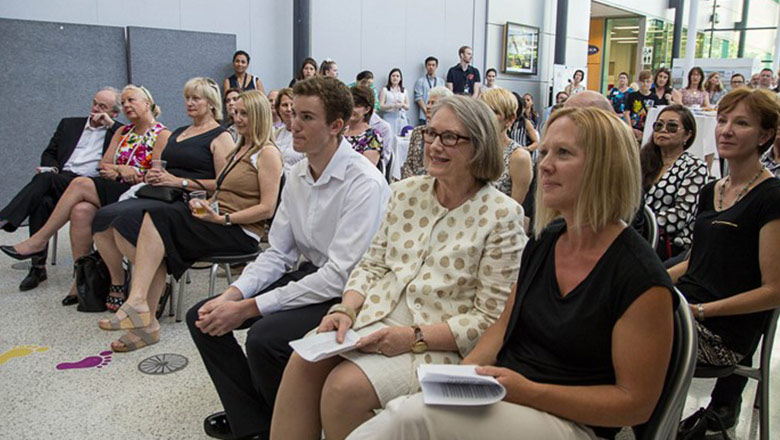Search

News & Events
Lucia's journeyMeet 11-year-old Lucia, who was diagnosed with Type 1 Diabetes when she was 10. Read all about her journey and how she manages her disease in her own words.
News & Events
Medical AssessmentsPeople with type 1 diabetes require the completion of a Medical Assessment form for activities such as driving, skipper tickets and scuba-diving etc.

News & Events
Research Boost for Diabetes Team at Princess Margaret HospitalAfter an intensely competitive process, the research team at Princess Margaret Hospital were awarded $5.2million from a joint JDRF/NHMRC research grant.

News & Events
Major focus for children's diabetes research in WAResearch into childhood diabetes in Perth has been given a major boost with the launch of the WA Children's Diabetes Research and Education Centre for Research Excellence (CRE) on the eve of World Diabetes Day.

The Rio Tinto Children’s Diabetes Centre acknowledges the importance of those living with type 1 diabetes (T1D), those that care for them and the type 1 diabetes community (T1D community) in sharing your lived-experience.
For app support, please email diabetes.research@health.wa.gov.au

Two new resources have been created for patients — Know the Numbers and Your HbA1c Chart.

We know many families have questions about the risk of COVID-19 to children with type 1 diabetes. To address these questions, Perth Children’s Hospital’s Diabetes Clinic has provided information and resources to help you navigate this tricky period.

Even in the safety of their home, there are many risky places a child or teenager can visit online.

We have created a range of engaging and hands-on lesson plans designed for the classroom on topics of health and science.
